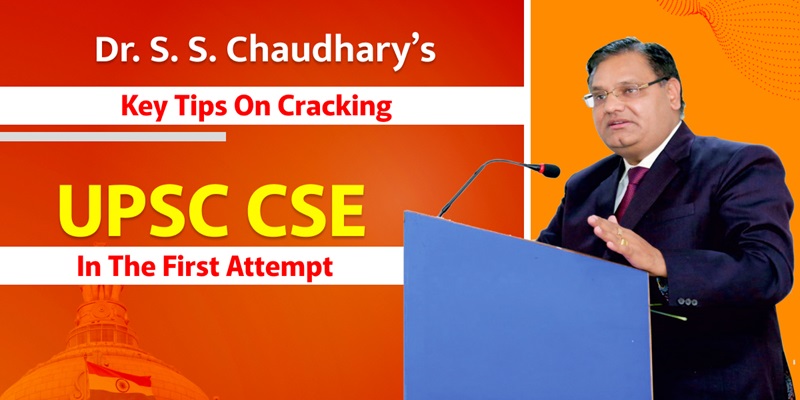Stressed About Your Board Exams? Here are Some Pro Tips to Follow
- December 24, 2021
Editor’s note: As the exam season nears, one book that you should definitely flip through — apart from your textbooks — is How I Topped the Boards and You Can Too! written by Gaurav Sood. Sood, who topped his own ISC board exam in 2008, with a near perfect 99 per cent, and is currently studying at Oxford. He shares some pro tips on how to strategize and study before your exams in this fun, and easy-to-read book that will definitely be a great help to all the students who will be taking their boards soon.
Here’s an excerpt from How I Topped the Boards and You Can Too!, which urges you to fulfil all your Game of Thrones binge-watch cravings, and satiate your fear of missing out before you sit down to prepare for one of the most important exams of your school life.
The Fun Stuff
So before we get to the boring bits, let’s talk about the fun stuff. Go fail a few classes… All of Class 11, if need be. Alright, don’t fail…but you get the drift, which is basically this—go have some fun. Go do something stupid while you have the time, and get it out of the system. I can’t stress this enough. Your boards are possibly the most important examination of your life.
That one month, for most of you, will determine your path over the next few years, if nothing more. They’re important.
The sooner you understand that, the better. We can whine and whine about it as much as we like, but the Indian education system is structured in a way that some exams are more important than the others. In fact, if we look at it, most of life is. It sounds great on paper to say that we should study for the sake of knowledge and not just for an exam.
And on most occasions, I would be the first to agree with you— something that isn’t done for the right reasons isn’t worth doing at the end of the day. Study not for an exam, but for the knowledge. Study not because you have to, but because you want to. Don’t study for the marks, study for the learning. But as poetic as all of that sounds, the fact of the matter is that, for most of us, that strategy doesn’t work. That perspective is great for our long-term personal development, but for our purposes, we need to set it aside for a while. Just a while. You see, there are very few who will be able to sustain that optimum level over the course of their lives, where they have enough in the tank to crack every examination they take or jump every hurdle that comes their way. Most of us will have our ebbs and flows, and our highs and lows. Picture yourself at the start of a race, knees bent, waiting for the sound of that pistol. It’s a marathon, not a sprint. What’s your strategy? Do you go racing out of the blocks at full speed and try to sustain that for the next few hours? Or do you hold back for some time and then give it everything you’ve got in the final hurdle?
Option 1 sounds great if you can manage it. In fact, let’s imagine that we have Usain Bolt, the legendary sprinter who’s trying his luck at the marathon this year. He’s sprinted at 100 per cent all his life, and that’s his strategy for the marathon as well.And his thought process would be justified—there’s no person on this planet who can sprint faster than him. But this isn’t a 100-metre dash. And his opponent in the marathon today is Mo Farah, the most successful British long-distance runner in Olympic history. Farah understands the limits of his body. He knows there’s no way he’s faster than Bolt. He’s never beating him in a sprint. But what he has over Bolt is stamina.
He’s happy to let him take the lead at the start—because the only thing that matters is the finish. So who do you think will win this race? The person who’s planning to sprint his way through the marathon or the person who has the right strategy for a marathon? Now if Bolt can, in fact, sprint at 100 per cent through the course of the entire marathon, there’s nothing that Farah can do, except say ‘too good’ and concede defeat to someone who is as close to Superman as we’ll ever get. There would be no shame in that defeat.
But the odds are that Bolt, for all his incredible talent, isn’t Superman. And life is all about the odds.
The odds are that Bolt will run out of steam—and Farah knows it. And so he’s happy to let Bolt take the lead and
tire himself out at the beginning. And slowly but surely, Farah will catch up and, eventually, win that race. And
like I said, it’s only the finishing line that matters. It’s exactly the same in life—and for our purposes, the board examinations. If you’re going to try to ace every exam, big or small that comes before you, eventually you’re going to burn out. I’ve seen it happen to some of the most talented and brilliant individuals that I know. I wasn’t a patch on them academically, but whenever it mattered, I outran them comprehensively, and then some.
To give you another analogy, I’m going to swing into the world of tennis—my favourite sport and way to pass time and destroy television remotes (tennis can be an expensive vocation when you’ve woken up at 3 a.m. on a workday to watch a four-hour match, only for your favourite player to lose at the end of it). You might have heard of Roger Federer, the legendary Swiss tennis player? Do you know why Federer is considered the greatest tennis player, and perhaps athlete, of all time? Not because of the number of total titles or matches he’s won. He’s second on that list. Most average enthusiasts won’t even recognize the name of the person who holds that record. But in tennis, the biggest titles are the Grand Slams—four held every year. Those are the titles that count—that define a tennis player’s legacy and his or her place in the record books. Federer has won more of these titles than any other male player in the game.
That’s what makes him such a legend. In tennis circles, it’s widely agreed that there is no one better than him at pacing himself or herself to be in optimum shape for the Grand Slams. He uses the rest of the tournaments to sharpen his tools for these four that matter. It’s nearly impossible for us to bring our A-game every single day. It’s unrealistic to expect that of ourselves. The solution? We need to pace ourselves to perform our best when it matters the most. In our case, it’s the board examinations. If you’ve exhausted most of your reserves preparing for your 11th-grade school examinations, chances are that, by the time your far-more-important final year comes around, you won’t be in shape to give it your 100 per cent. Burnt out may be too strong a word, but you get the drift. Anything short of your 100 per cent is not going to get you the results you want.
Mentally, you want to be as fresh as possible coming into your 12th grade. So our preparation begins a year before that’s the bad news. The good news? The preparation is to have as much fun as possible. Yup. Go join the clubs you want to. Learn the guitar. Watch as many reruns of Game of Thrones as you like the night before a test.
Waste as much time as you can with your friends. That’s basically it. We’re playing the long game, and we’re playing to win. And if we want to win, we need to charge our batteries and get everything out of our system before the 12th grade comes around. Like Mo Farah, and Roger Federer, even while taking it easy, we’re subconsciously getting ready for the final stretch. It’ll be here sooner than you know, and when it does, you’ll be ready.
The following excerpt from How I Topped My Boards and You Can Too! by Gaurav Sood has been published with permission from Rupa Publications. The hardcover of the book costs Rs 295.







